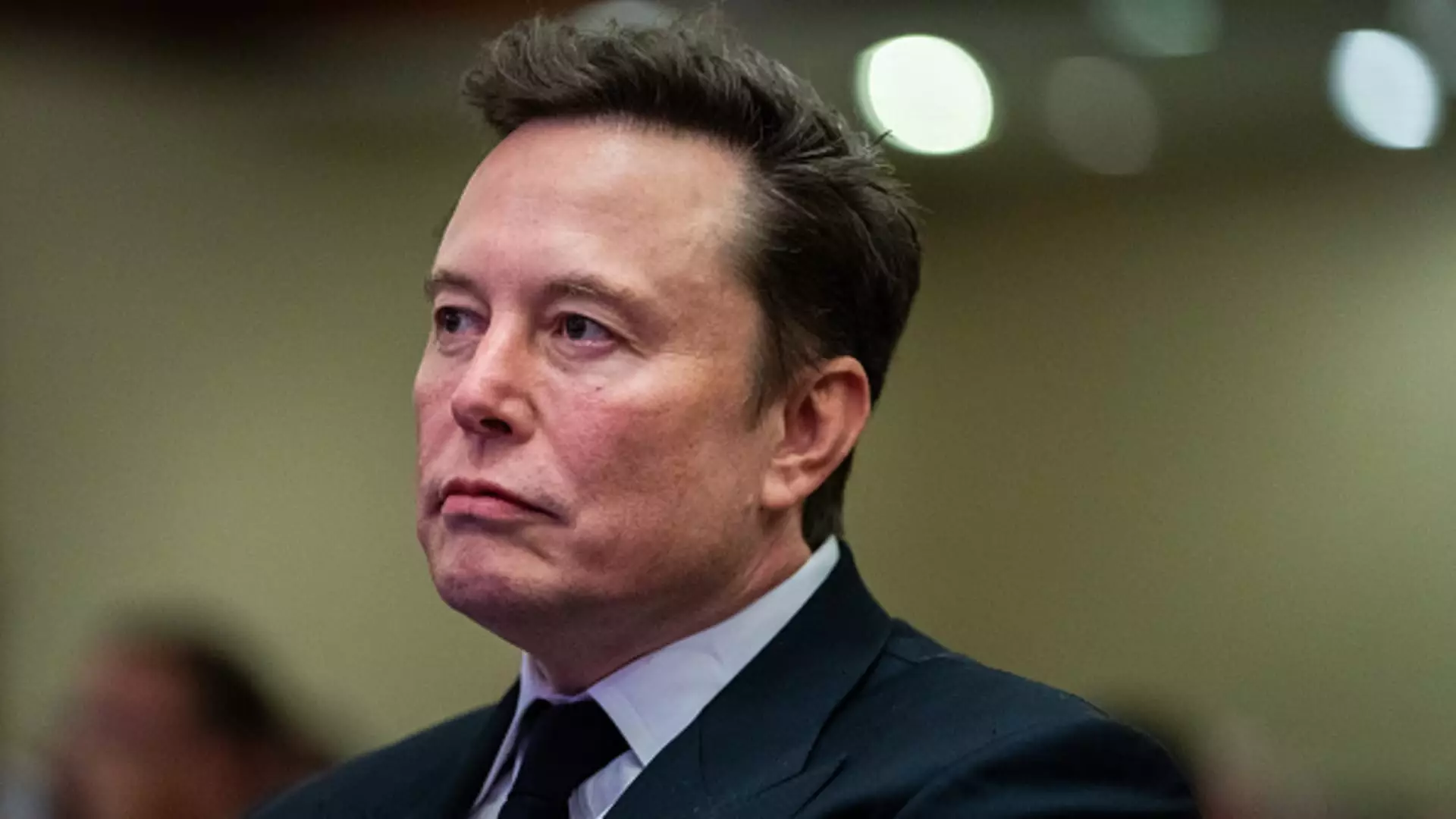In the digital age, social media platforms wield considerable power over public discourse, shaping narratives and influencing political landscapes. Elon Musk, once heralded as a champion of free speech, now finds himself embroiled in controversy after conservative users of his platform, X (formerly known as Twitter), accused him of censorship. The incident, stemming from the revocation of premium features from several right-wing accounts critical of Musk’s stance on immigration, raises significant questions about the ethics of platform moderation and the balance between free expression and political sentiment.
On a seemingly typical Friday, at least 14 conservative accounts reported that X had rescinded their blue verification badges, consequently stripping them of vital monetization tools, including subscriptions and advertising revenue sharing. The timing of these penalties has not gone unnoticed; the affected individuals had recently voiced dissent against Musk’s commentary on immigration. Although these accounts remain active, the loss of monetization capabilities has left many wondering whether opinions diverging from Musk’s perspectives can coexist on his platform without repercussions. This state of uncertainty has incited anger and feelings of betrayal among conservatives, who previously regarded Musk as an ally in the fight against perceived liberal biases in digital spaces.
Musk’s Mixed Messaging
Musk’s self-identification as a “free-expression advocate” contrasts sharply with actions perceived as retaliatory censorship. A post he made shortly before the incidents suggested that accounts facing significant muting or blocking from credible users would experience reduced visibility on the platform. This explanation has been met with skepticism. For many critics, it appears to serve as a thin veneer for shadowbanning practices that disproportionately affect conservative voices. The backlash intensified within the context of active discussions regarding upcoming immigration policies, particularly among pro-Trump circles that view Musk as an influential narrative shaper.
The furor over Musk’s actions also highlights the troubling symbiosis between social media platforms and partisan media entities. Influencers affiliated with organizations like ConservativeOG seem particularly impacted, leading to the narrative that these punitive measures are targeted political takedowns rather than impartial enforcement of platform rules. Influencers like Preston Parra have openly framed the situation as a violation of political rights, portraying Musk’s actions as emblematic of a broader struggle against technology companies that may harbor left-leaning biases.
As tensions mount, the sentiments expressed by conservative influencers exemplify a growing distrust of tech moguls perceived as out of touch with grassroots political movements. Parra’s assertion that Musk is a “Trojan horse” within the MAGA camp epitomizes a demand for loyalty and alignment on issues like immigration. This dichotomy—between tech industry elites and ordinary conservative constituents—appears to fuel an ongoing campaign to hold Musk accountable. With the recent upheaval surrounding his partnerships within the GOP, the perception of Musk as a double agent in the conservative movement is likely to complicate his relationship with constituents who once championed him.
Ultimately, the unfolding drama on X casts a spotlight on the broader challenges of free speech in our increasingly polarized society. Musk’s go-to mantra of supporting free expression stands juxtaposed against real actions that raise serious concerns about his platform’s operational integrity. The furor from conservative users serves as a reminder of the delicate balance social media platforms must strike between moderation, user engagement, and political influence. As conversations about censorship and the power dynamics in digital spaces evolve, stakeholders across the political spectrum will be forced to reckon with the uncomfortable realities of who truly controls the narrative. Whether Musk can navigate these tumultuous waters without alienating significant portions of his user base remains an open question, with implications that extend well beyond the confines of social media.


Leave a Reply